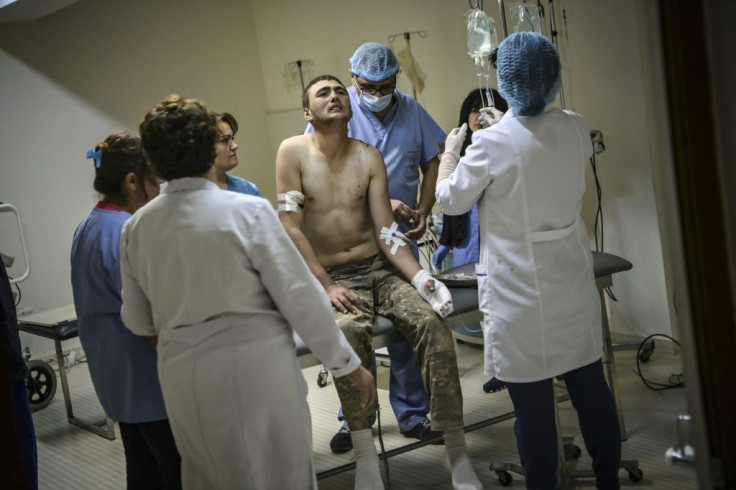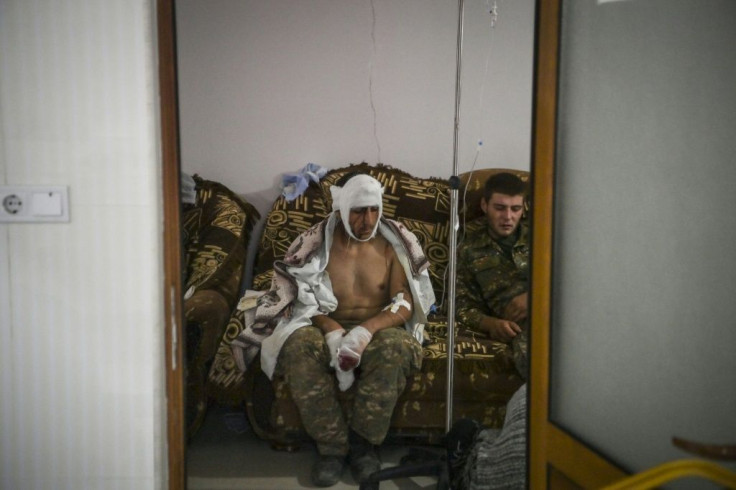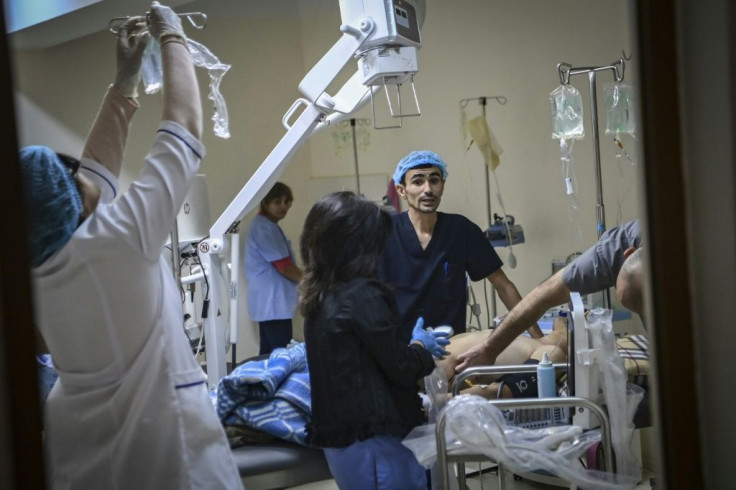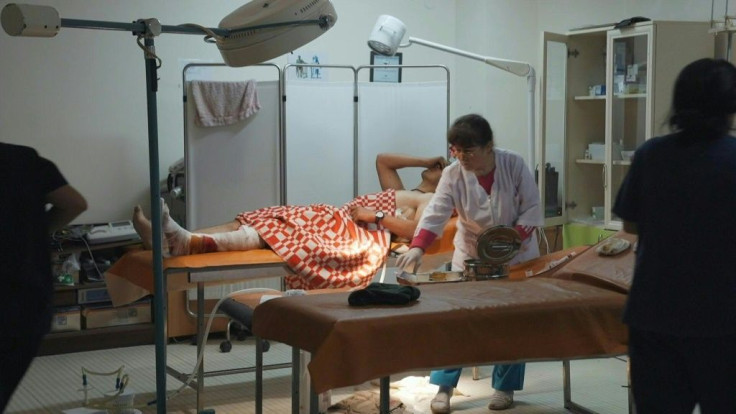Doctors In Karabakh Hospital Basement Feel Frontline Effect
In the basement of a hospital in Nagorno-Karabakh, nurses take off the jacket of a young soldier with a bandaged hand, his gaze empty. Nearby, another lies on a bed, his foot dressed in a bloody gauze.
Dusty military boots are piled into the corner of a corridor while dirty combat fatigues, some with traces of blood, are stacked up close by.

The frontline is not far. Fighting has been raging since September 27 between Azerbaijani soldiers and Armenian separatists.
"This city was under attack and a lot of the doctors -- some doctors -- were afraid to come here," says Ara Ayvazyan, a 42-year-old doctor who asks that AFP does not reveal the location of the hospital for fear of being shelled.
"So I decided to be the one in this place where there is nobody who can help," he adds in English, standing in the neon-lit basement where staff moved operations to protect themselves from potential bombardment.

Here, civilians and soldiers of Nagorno-Karabakh, an ethnic Armenian separatist region of Azerbaijan, are treated for injuries suffered on the frontline or in bombings.
Ayvazyan, who sports a multi-coloured bandana on his head, says he's lost track of how many operations he's performed.
"It's different day by day. We have days when we have very few wounded, we have days when we have a line waiting for the operating room," he says.

"It depends where they strike and how many they strike," he adds, referring to Azerbaijani troops.
"Sometimes they are targeting the citizens, innocent citizens, children, adults... and when they strike the houses of these people, the family comes together to our hospital and needs our help."

In the corridors of the basement, whose entrance is guarded by armed soldiers, nurses comfort each other. One of them sits further away, her head in her hands.

Both Christian Armenians and Muslim Azerbaijanis view the fertile valleys and mountains of Nagorno-Karabakh as their ancestral lands.
Azerbaijanis have not controlled the region since a 1994 ceasefire put an end to a bloody conflict triggered when Nagorno-Karabakh declared unilateral independence.
Armenia meanwhile backs the separatists even if it does not recognise the region as independent.
"Everything that we have seen in the last few days is enough to drive us crazy, we cannot continue like this... But please stick by our soldiers, by our people," pleads Nouneh Ohanyan, a 49-year-old doctor, her eyes red and on the verge of crying.
"Sometimes soldiers come here and encourage us, a lot of injured soldiers encourage us, telling us we will win. But when will victory come, and at what price?," she asks.
The latest flare-up in fighting has left more than 600 people dead, according to an incomplete toll that could be far higher as Azerbaijan does not provide any figures for its military casualties.
The number of injuries is not known.
For Ayvazyan, working under bombing raids was difficult at first.
But now, they all know what type of weapon is being used and how far away just from the sound of the explosions, he says.
"You see all around here strikes from Grad (rockets), Smerch (rocket systems), very big holes from air strike missiles."
And he doesn't intend to leave.
"So when they will not need any help, we will go home and do our usual job. In a beautiful hospital near my children."
© Copyright AFP {{Year}}. All rights reserved.





















